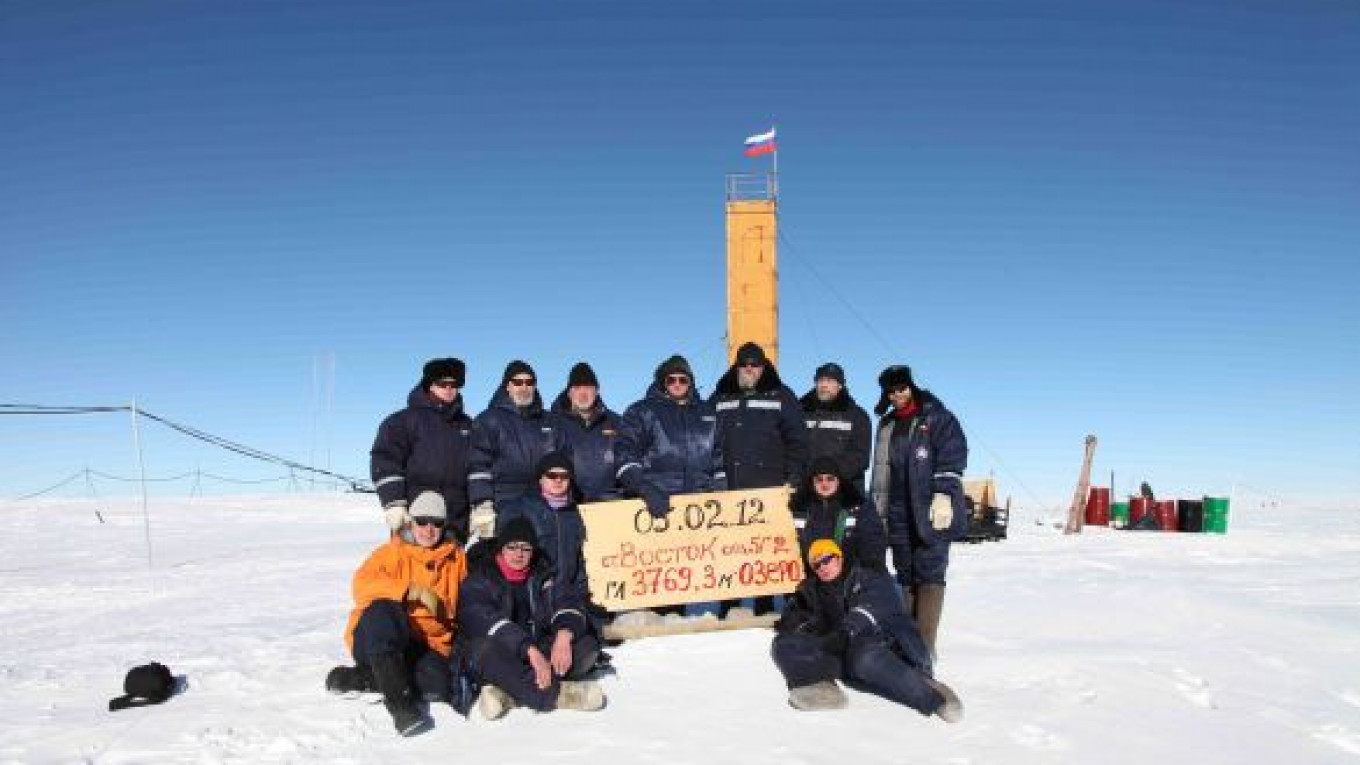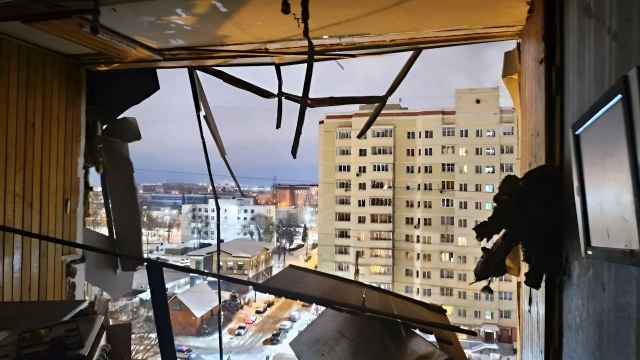A new form of microbial life has been found in water samples taken from a giant freshwater lake hidden under kilometers of Antarctic ice, Russian scientists said.
Sergei Bulat and Valery Lukin said in a statement that the "unidentified and unclassified" bacterium has no relation to any of the existing bacterial types. They acknowledged, however, that extensive research of the microbe that was sealed under the ice for millions of years will be necessary to prove the find and determine the bacterium's characteristics.
New samples of water retrieved from Lake Vostok earlier this year are expected to be delivered to St. Petersburg in May aboard a Russian ship.
The Russian team reached the surface of the subglacial lake in February 2012 after more than two decades of drilling, a major achievement hailed by scientists around the world.
They touched the lake water Sunday at a depth of 3,769 meters, about 1,300 kilometers east of the South Pole in the central part of the continent.
Scientists hope the lake might allow a glimpse into microbial life forms that existed before the Ice Age and could have survived in the dark depths of the lake, despite its high pressure and constant cold — conditions similar to those that also are believed to be found under the ice crust on Mars, Jupiter's moon Europa and Saturn's moon Enceladus.
At 250 kilometers long and 50 kilometers wide, Lake Vostok is similar in size to Lake Ontario. It is kept from freezing into a solid block by the kilometers-thick crust of ice across it that acts like a blanket, keeping in heat generated by geothermal energy underneath.
Some have voiced concern that the more than 60 tons of lubricants and antifreeze used in the drilling may contaminate the lake, but the Russian researchers have insisted that their technology is environmentally secure. They said water from the lake rushed up the borehole once the drill touched the surface and froze, safely sealing the lubricants from the lake's pristine waters.
Bulat and Lukin said the research team has done a meticulous analysis of the samples to differentiate bacteria contained in lubricants from what they hoped could be a trace of new life forms. Initial studies only spotted bacteria associated with the lubricants, but scientists said they eventually found one bacterium that didn't fall into any of the known categories.
The researchers said that the small size of the initial sample and its heavy contamination made it difficult to conduct more extensive research. They voiced hope that the new samples of clean frozen water that are to arrive in St. Petersburg this spring will make it possible to "confirm the find and, perhaps, discover new previously unknown forms of microbial life."
A U.S. team that recently touched the surface of Lake Whillans, a shallower subglacial body of water west of the South Pole, also found microbes. The scientists are yet to determine what forms of bacteria they found.
A Message from The Moscow Times:
Dear readers,
We are facing unprecedented challenges. Russia's Prosecutor General's Office has designated The Moscow Times as an "undesirable" organization, criminalizing our work and putting our staff at risk of prosecution. This follows our earlier unjust labeling as a "foreign agent."
These actions are direct attempts to silence independent journalism in Russia. The authorities claim our work "discredits the decisions of the Russian leadership." We see things differently: we strive to provide accurate, unbiased reporting on Russia.
We, the journalists of The Moscow Times, refuse to be silenced. But to continue our work, we need your help.
Your support, no matter how small, makes a world of difference. If you can, please support us monthly starting from just $2. It's quick to set up, and every contribution makes a significant impact.
By supporting The Moscow Times, you're defending open, independent journalism in the face of repression. Thank you for standing with us.
Remind me later.






